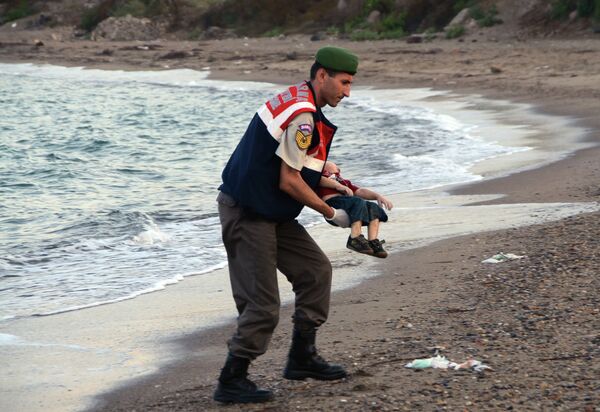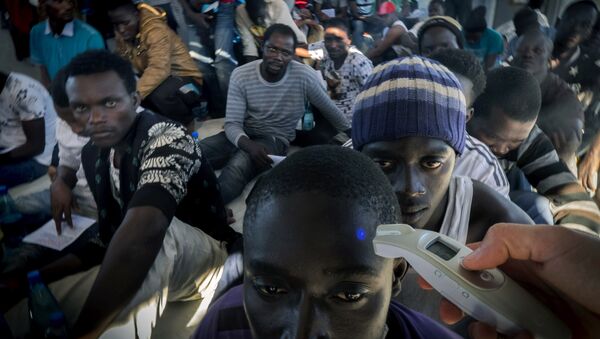The EU's border agency Frontex have accused NGOs of adding further issues to the migration crisis. The government agency issued a statement blaming Medecins Sans Frontieres (MSF) and several other NGOs for colluding with human smugglers and being responsible for more migrants dying at sea.
Frontex executive director Fabrice Leggeri, said that NGO vessels in Libyan waters had contributed to more traffickers forcing migrants onto unseaworthy boats, which have insufficient water and fuel, compared to previous years.
@MSF_Sea Fact: increase of NGO activity coincided with "dramatic" increase of overall number of incidents (Frontex) https://t.co/Jah30NAdnW pic.twitter.com/0kxgyj3VsU
— JB (@Teikums) 29 March 2017
MSF were forced to speak out after Leggeri made his comments, claiming that the remarks were "extremely serious and damaging" and said its humanitarian action was not "the cause but a response" to the crisis.
However Frontex are not the only group to comment on this — European politicians have shared similar sentiments, according to some sources. Their main intent is to try and distract people away from their own inactivity and escape responsibility for the irregular crossings and deaths across the central Mediterranean route from Libya to Europe.
Every time we see a wooden boat we are shocked to see just how many people are stuffed inside — 412 people on this very modestly sized boat. pic.twitter.com/KSLjrHzs09
— MSF Sea (@MSF_Sea) March 26, 2017
Some sources say there has been a general shift in how search and rescue operations are carried out, with European governments appearing to be in more of a rush to secure their borders. In addition to this, concern and sympathy for migrants and refugees fleeing war seems to have dwindled since the 2015 death of the Kurdish toddler Aylan Kurdi.
According to many Syrian refugees now residing in Greece, Aylan Kurdi's death may have sparked outrage at the time, but there are still thousands of children dying in the Mediterranean, yet the level of attention and outrage towards the ever-present problem is considerably lower.

Governments have also made an example of those who have risked their lives to help refugees. Volunteers and activists — such as Cedric Herrou, a French farmer, who helped migrants cross the border from Italy and gave them shelter — have been brought to trial.
France: Putting the interests of humanity first #refugeeswelcome #CédricHerrou https://t.co/Sa8IaKDEQw pic.twitter.com/TSjkgKFEr5
— revcom.us/Revolution (@tuneintorevcom) 20 March 2017
According to some governments, curbing migration is the only way to stop the rise in terrorism and ensure the refugees are safe. In January 2017, EU ministers pushed forward with plans to fund refugee camps outside the bloc, specifically in North Africa, to try and save migrants from drowning in the Mediterranean and bring to Europe only those who require immediate protection.
"The idea is to send refugees and migrants to a safe place, without bringing them into Europe. To achieve that, the EU is considering funding special camps outside of Europe where migrants will be screened by NGOs and the UN," German Interior Minister Thomas de Maiziere said in a recent interview.
The question as to whether NGOs and governments will reach a a resolution that works for both sides is still unclear. Whether search and rescue operations will be conducted in the same way also remains to be seen.


